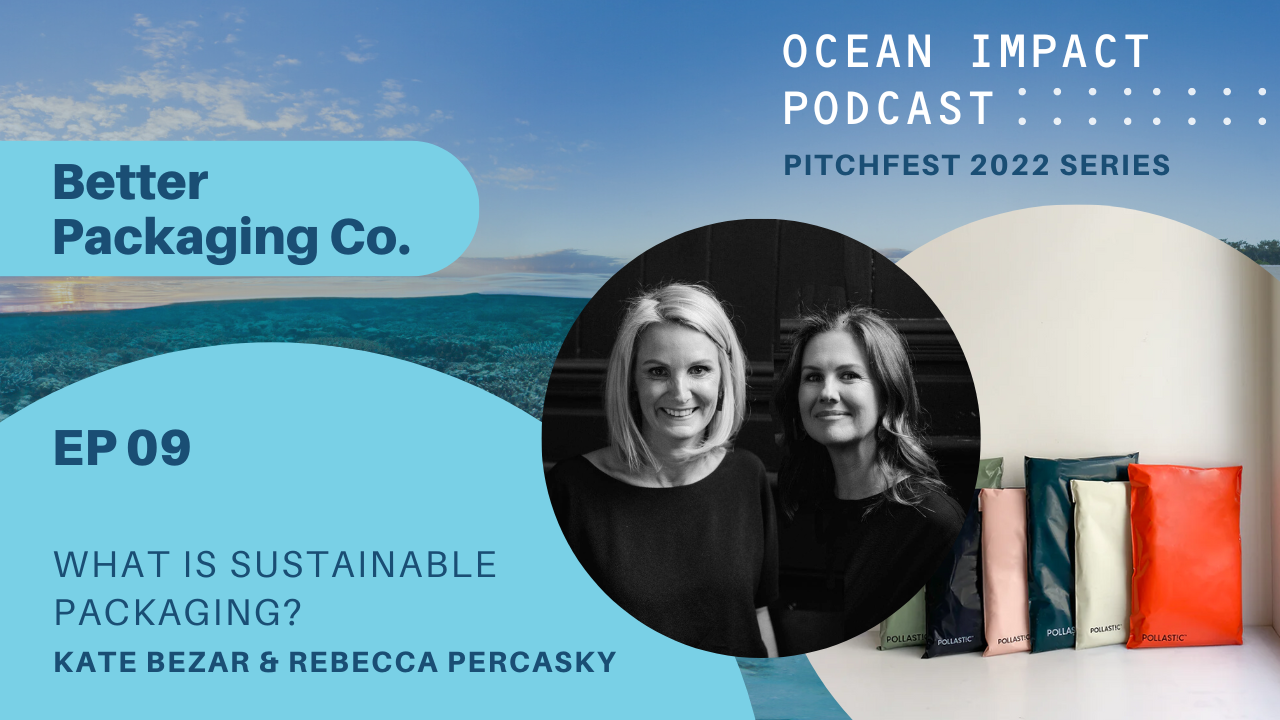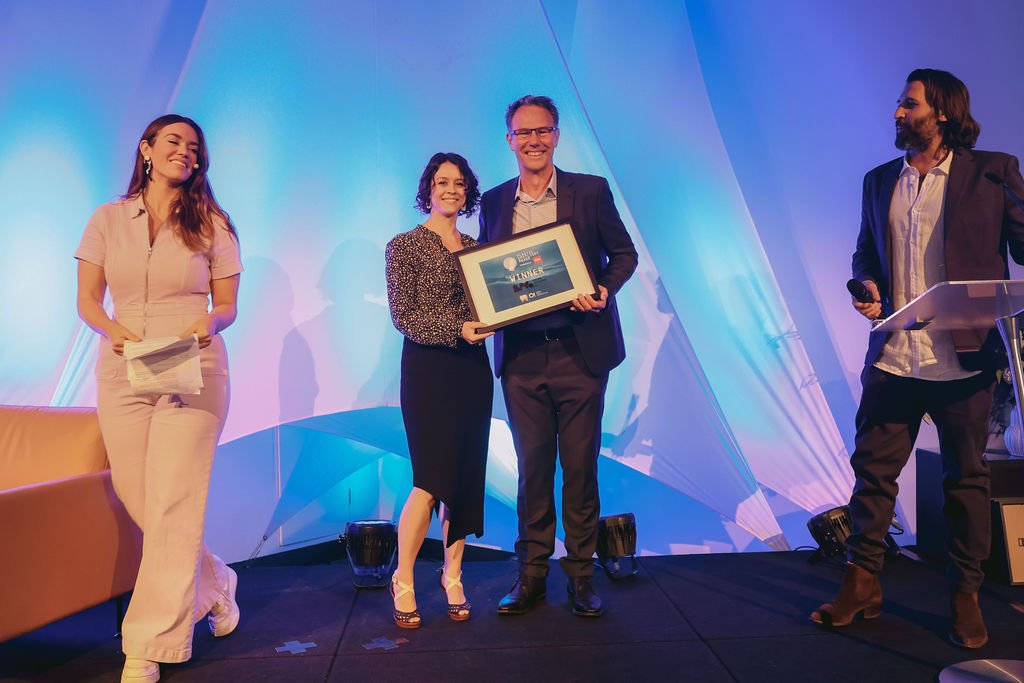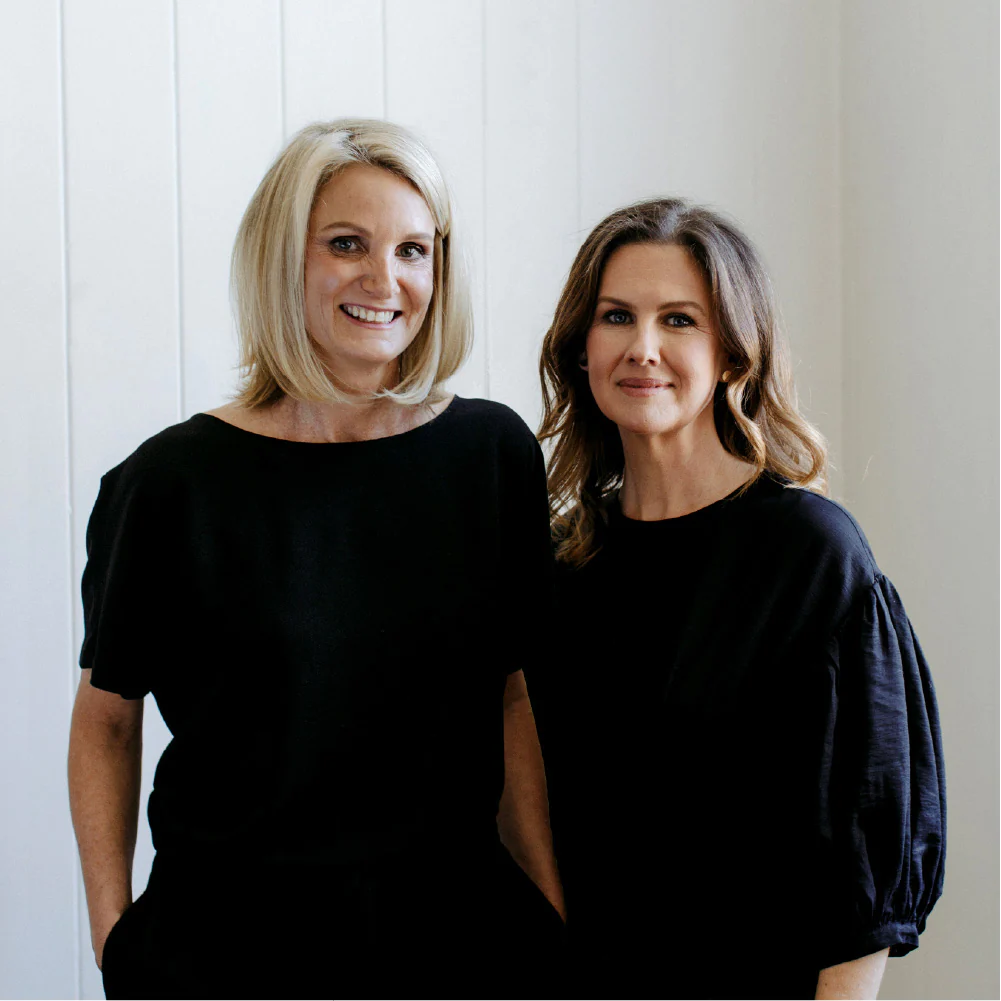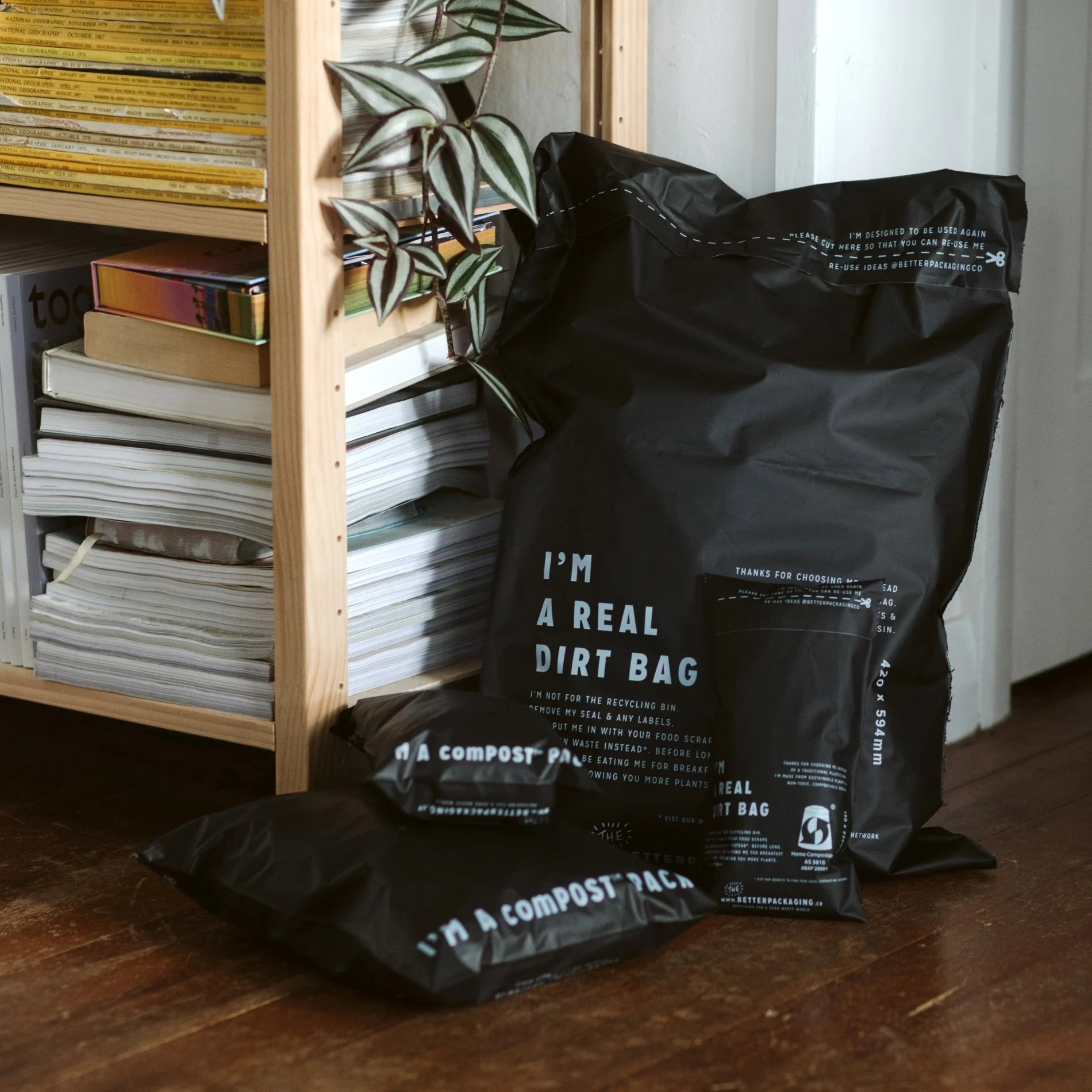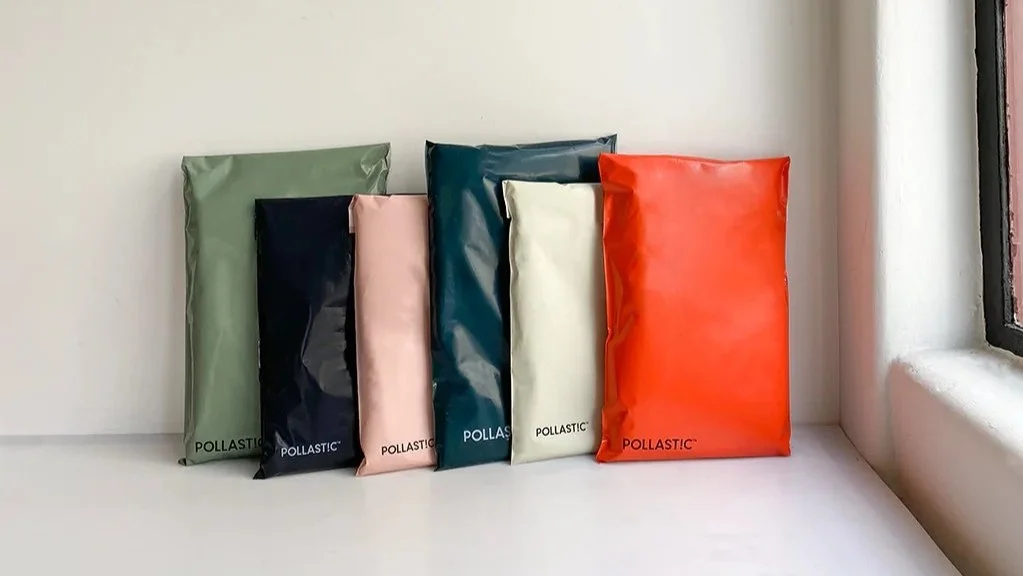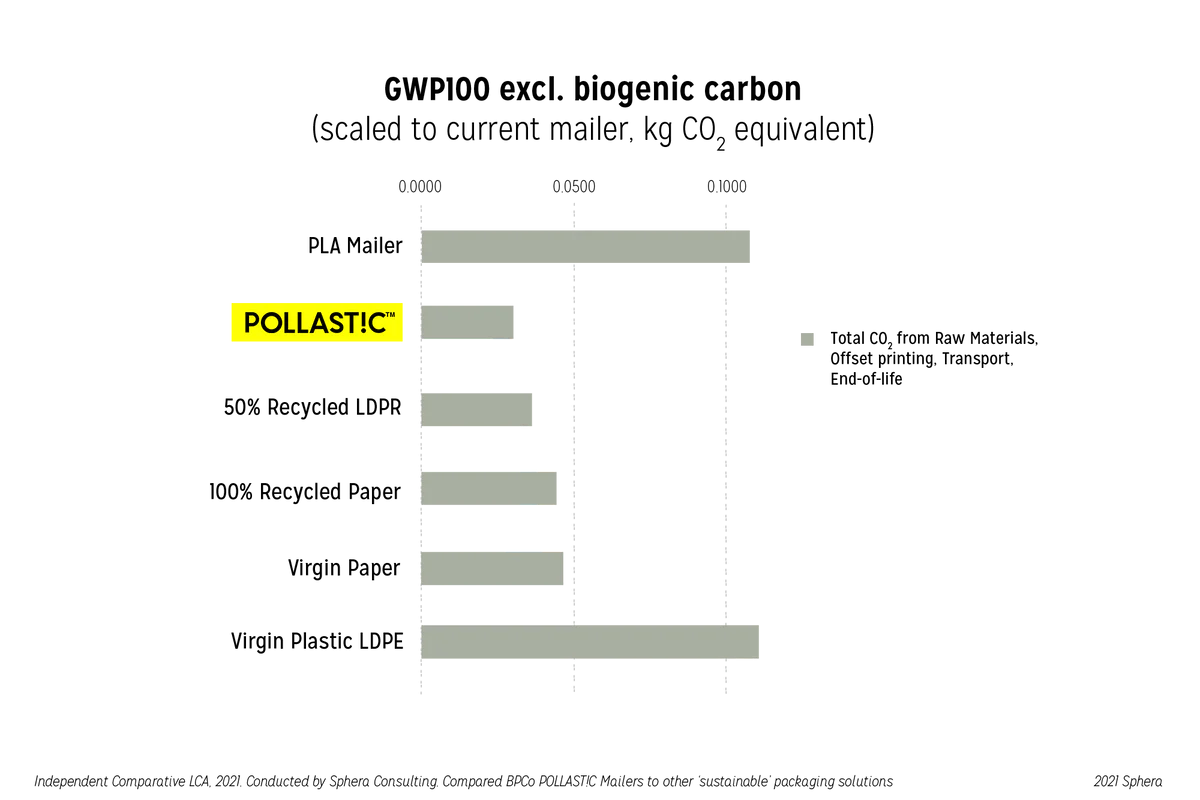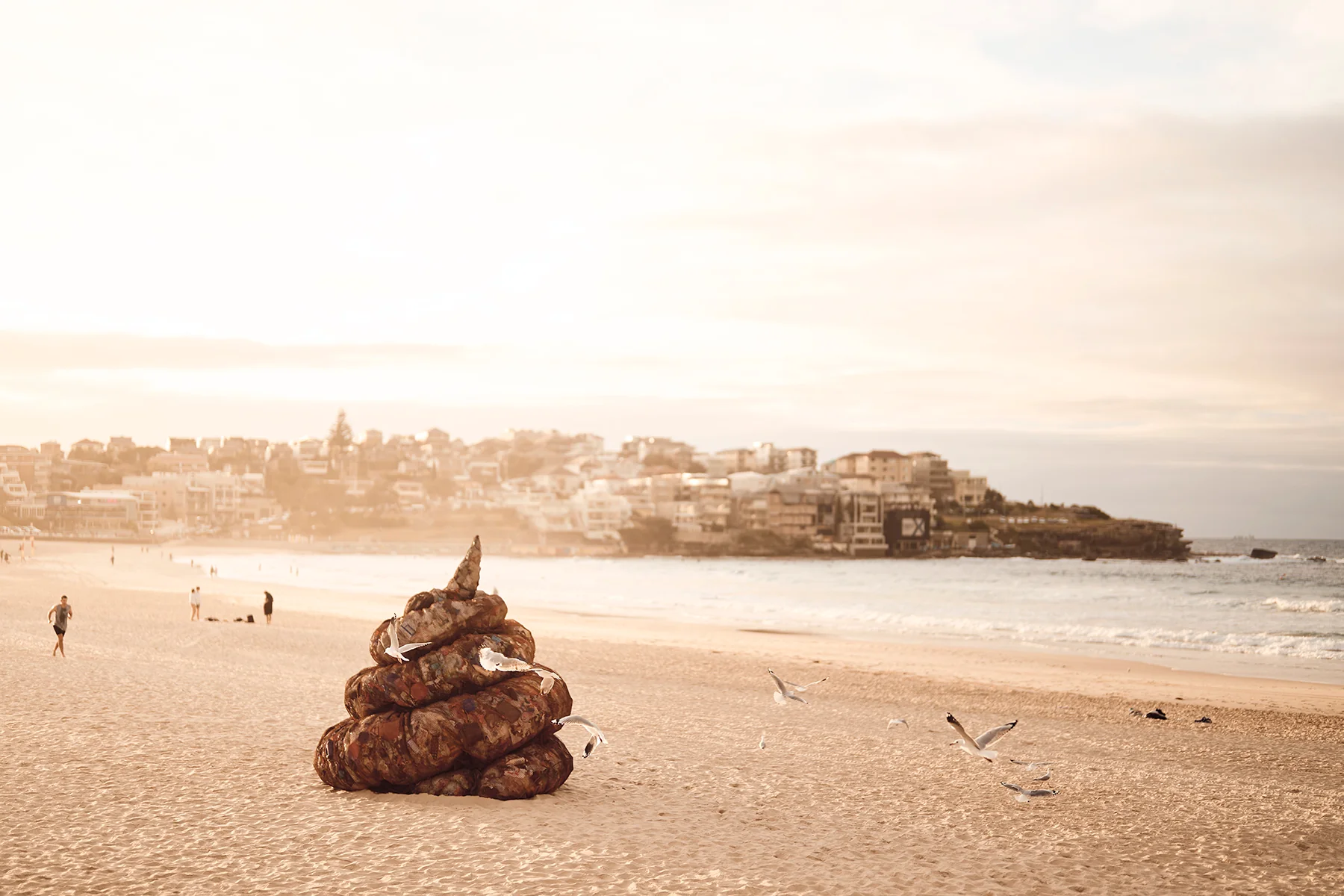What is Sustainable Packaging? Kate Bezar & Rebecca Percasky from BPCo.
Did you know that the equivalent of one garbage truck worth of plastic ends up in the ocean every minute? And according to the OECD, 40% of global plastic waste actually comes from packaging. But one New Zealand startup is on a mission to make sustainable packaging that does better. And whether they’re creating compostable mailers which declare “I’m a real dirt bag” or putting a giant emoji poo made of plastic waste on Bondi Beach - they seem pretty passionate about it.
For the ninth episode of our Pitchfest 2022 Series on the Ocean Impact Podcast, we chatted to Better Packaging Co. founders Kate Bezar and Rebecca Percasky about their sustainable packaging. Which aims to not only do less harm, but to also deliver some good.
Better Packaging Co. (or BPCo.) is “packed with impact” and produces sustainable packaging for eCommerce, apparel, and retail, made from compostable materials, plastic waste, bamboo, and even quarry waste!
This New Zealand-based carbon neutral BCorp won the Plastic Pollution Spotlight Award presented by Zip Water as part of The Ocean Impact Pitchfest 2022. They’re no stranger to Pitchfest either, as two-time Finalists.
Pictured: Mike Abbott, Managing Director at Zip Water, presenting Carly Espinosa from Better Packaging Co. with the Plastic Pollution Spotlight Award at INNOVOCEAN.
Kate and Becs aren’t just co-founders, they’re long-time friends! Sharing a chemistry and rapport that’s clear to see within five minutes of chatting to them.
”We’re friends first and foremost. you probably get a feel for that. so it's quite tricky when we're trying to talk work because we always digress into all sorts of personal stuff and cycle back and it's all completely interlinked. we're great mates. we just love working with each other… we sort of take crazy risks when we're together. there's less fear. we've got each other's back.”
~ Kate Bezar
Having previously worked together in the e-commerce technology space, it was there that they saw the huge rise in ‘online shopping’ and realised the packaging waste that was rising with it. This turned their attention to e-commerce packaging.
As consumers, they knew they wanted better from what they were receiving in the post.
And as previous business owners, they knew there was little in the way of sustainable alternatives.
What’s wrong with TYPICAL PACKAGING?
Packaging pollution can come from a range of sources, including the packaging for food & beverage, beauty & personal care, various industries and e-commerce. Although e-commerce has been increasing in popularity since the mid-1990’s, one things is for certain:
COVID-19 changed the way people shopped.
In its annual eCommerce report for 2021, Australia Post reported that online shopping growth in Australia in 2020 topped 57%. And with this boom, the pitfalls of typical packaging have only become more apparent:
Packaging forms up to 30% of online retail's carbon footprint
In the US alone, more than 600 million pounds pounds of plastic packaging waste was generated by e-commerce businesses in 2020.
And plastic packaging across industries has a lot to answer for:
Plastic packaging is almost exclusively single-use and makes up around 40% of global plastic waste
Yet only 14% of plastic packaging is collected for recycling
And worst of all it contributes to the estimated 11 million tonnes of plastic that the UNEP estimates enters the world’s oceans every year.
But the drawbacks aren’t just environmental, they’re economic. According to World Economic Forum:
95% of plastic packaging material value, or $80–120 billion annually, is lost to the economy in the form of waste.
WHat is sustainable Packaging?
Broadly speaking, sustainable packaging is simply the use, creation, or implementation of packaging that has minimal environmental impact and a lower carbon footprint, or is actively better for the environment.
Sustainable packaging can often be reused, recycled, or kept in circulation for longer than traditional packaging. Alternatively, it might be made from post-consumer materials rather than raw/virgin resources.
Examples include, but aren’t limited to:
Compostable packaging
Recycled packaging (such as recycled paper or plastic)
Plant-based or bio-based packaging
Packaging made from recoverable or infinitely recyclable materials (such as aluminium).
Packaging created using alternate waste streams
HOW BPCo. ARE TACKLING THE PROBLEM
Better Packaging Co. produces a wide range of sustainable packaging alternatives for e-commerce; such as mailers, envelopes, garment bags, hygiene liners, labels, tape, ziplock bags, and more. They’re continually finding new ways to make packaging better, with innovative ranges such as:
Their original compostable comPOST range: designed to stop petroleum-based plastic being produced in the first place
The POLLAST!C range: designed to address existing plastic pollution, by removing it from the environment and treating it as a resource - not waste.
Their bamboo range of envelopes: designed to actually give back to the environment (they plant a tree with each order), as well as be a more sustainable alternative to paper, and still recyclable at end of life.
And other unique products: like their ØPACK waterproof envelopes from limestone quarry waste, or semi-transparent and re-resealable Glassine paper garment bags.
For transparency, they list the materials used in these ranges under the product page of every item (with explanations) so customers can see exactly what goes into each.
Better Packaging Co’s POLLAST!C range of mailers
POLLAST!C
What if the plastic finding its way into the ocean was considered a resource on land, instead of waste?
80% of plastic in the ocean originates on land. And in areas with no formal waste management infrastructure, such as coastal communities in Southeast Asia, there’s often nowhere for plastic to go when discarded. It may be incinerated or buried, but often it’s dug up by animals, or caught in the wind or monsoon rain.
And then? It’s an easy journey from ditches, to waterways, to the ocean.
Better Packaging Co. puts a value on this waste, paying collectors in Indonesia and Malaysia a fair wage to collect plastic pollution from their environment, waterways, and beaches. This is then bailed, washed, dried, sorted, chipped, processed, and converted into POLLAST!C packaging.
social solution to plastic pollution
Working closely and responsibly with local communities in SE Asia benefits both people and planet. When BPCo. commit to purchasing the plastic pollution they collect, it provides people with a consistent source of income, and this can help raise standards of living.
is it really ‘OCEAN BOUND’ PLASTIC?
Amongst so much ‘blue-washing’ these days, what constitutes ocean bound plastic?
Better Packaging Co. have an Ocean Bound Plastic Certification (OBP) which guarantees the origin and traceability of the plastic pollution that they collect and recycle. OBP is defined as plastic waste which is “at risk of ending up in the ocean” and, according to Better Packaging Co’s website, this means POLLAST!C is made from plastic pollution that meets the following criteria:
has been abandoned*
in an area with no formal waste management infrastructure
is within 50km of the coast
*When already located in a landfill or managed dump site, the plastic waste is not considered OBP. But when abandoned in an uncontrolled or informal dump site, this waste is considered OBP (according to the website)
You can read more about the certification (under “OCEAN BOUND PLASTIC”) on BPCO's website or visit the OBP certification program webpage.
LOW CARBON FOOTPRINT
POLLAST!C mailers have been independently tested against other options, and found to have a CO₂ footprint 75% less than that of a traditional plastic mailer and 30% less even than 100% recycled paper.
Credit: Better Packaging Co. website
BPCo “kicked up a stink” on Bondi Beach
Emoji poo on bondi beach
This World Environment Day, Better Packaging Co. kicked up a stink on Bondi Beach with a giant emoji poo. Apparently, this structure represents the amount of plastic that enters the ocean every 30 seconds, and is made mostly of recycled waste plastics and secondhand fishing nets.
BPCo. estimates that this year alone, they could collect as much as 1 million kgs of plastic pollution from the environment in SE Asia and recycle it into POLLAST!C packaging.
sustainable packaging made from bamboo
Not content with just offering sustainable packaging that’s compostable, or made from recycled ocean bound plastic, Better Packaging Co. have recently released their bamboo range of envelopes.
These are made from 100% bamboo card (excluding ink, seal, release liner), with water-based ink, and non-toxic cold melt glue. And for every order, one tree is planted.
Benefits
Did you know that bamboo is actually a type of grass? Here’s why Better Packaging Co. are calling it “best in grass”:
Harvesting bamboo doesn’t kill it, it leaves the roots undisturbed which keeps the soil intact.
Bamboo is also one of the fastest-growing plants on the planet, and after harvesting, replenishes itself quickly.
It can produce 35% more oxygen than trees and absorb as much as 12 tonnes of carbon dioxide per hectare per year
Like paper, bamboo is also curb-side recyclable and biodegradable!
Advice for ocean impact startup founders
Better Packaging Co. founders Rebecca Percasky and Kate Bezar
They dropped some incredible wisdom for prospective founders and oceanpreneurs the last time they joined us on the Ocean Impact Podcast for the Pitchfest 2021 Series, so be sure to listen to that episode too. But as always, they dug deep to offer some additional insights from their past year.
Put one foot in front of the other
“One thing what has been quite pertinent to me in this last year is ‘one foot in front of the other.’ And I probably said this last time, but just take one step at a time. Don't get too far ahead of yourself. And last year was really challenging for us, there were lots of things that were thrown at us. And I just remember, you know, thinking each day ‘just get up, one step in front of the other’. Work out what you need to achieve for this day, or this week, or this month.
~ Becs
REFLECT ON THE WINS too
“Reflect on what you have achieved. We're not very good at that. But…even just coming on these podcasts, we get quite excited because you can sort of reflect on what you have achieved. And I think as entrepreneurs [you’re] quite often [looking] at what you haven't done, or what you need to do, and it can feel quite overwhelming. So sometimes it's important to reflect on what you have achieved.”
~ Becs
You don’t need to fit in a box to find investors
“We’re quite an interesting beast as a business. We're impact, but we're also commercial. We're a bit tech, but we're not entirely tech. We've also got a very strong brand. And I think we've learned to own that and not try to pander to…who we're talking to, and tell them what we think they want to hear. But just own the fact that, you know, yes we make impact and yes we also know how to make money. Yes, we've got IP but yes we're also an extraordinary powerful brand… sometimes that hasn't meant that we've fitted in the perfect box for some people. But that's okay, we've found our tribe of investors and they love us and believe in what we're doing - and we did get there.”
~ Kate
Listen and Watch
New episodes of the Pitchfest 2022 Series will be releasing each week. Follow the Ocean Impact Podcast wherever you get your podcasts, or subscribe and watch on Youtube.

